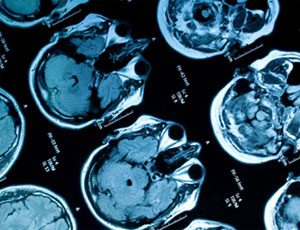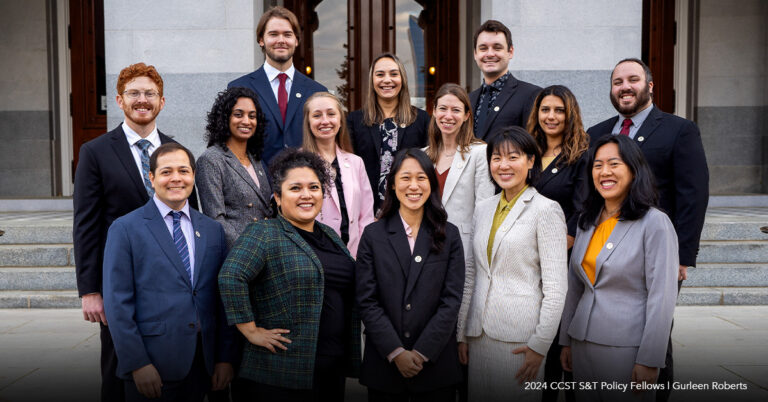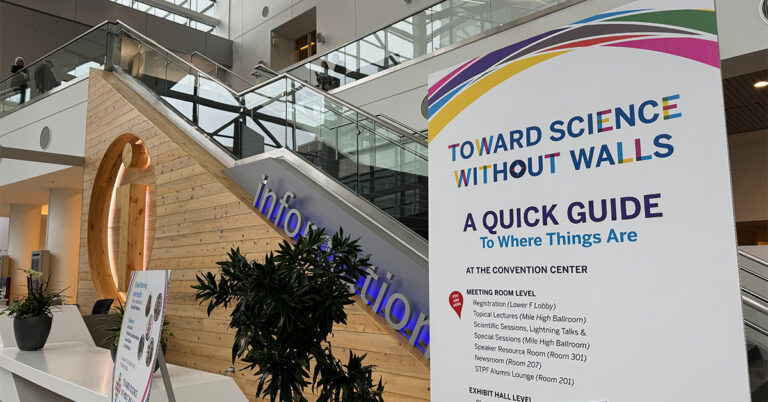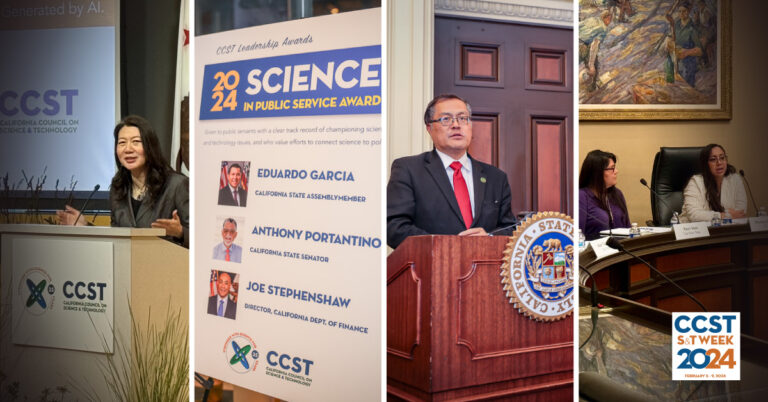Update: Applications for the CCST Science & Technology Policy Fellowship Have Closed
California Research Program Funds Development of New Brain Technologies
May 5, 2015 | CCST Newsroom | Contact: M. Daniel DeCillis
 A state initiative jointly led by the University of California (UC) San Diego and the Lawrence Berkeley National Laboratory called Cal-BRAIN has awarded over $1.9 million to seed projects around California designed to create new technologies capable of measuring brain activity in greater depth, breadth, and detail than is currently possible. Cal-BRAIN (the California Blueprint for Research to Advance Innovations in Neuroscience) is a program intended to establish a coordinated statewide program to award research grants and support, and integrate the search and convergence on new technologies capable of monitoring wide-scale activity in the brain. The program was signed into law in June 2014 and is the California complement to the federal BRAIN Initiative announced by President Barack Obama in 2013, which has similar goals and is administered by the National Institutes of Health, the National Science Foundation, and DARPA. California’s investment in a state-funded complement to the federal program is intended to leverage the state’s capacity for collaboration, entrepreneurship, and innovation to expand and accelerate brain research in the state in order to “promote the translation of breakthroughs into the marketplace… [and serve as] an important investment in the intellectual infrastructure for California’s economic future.” “This funding will enable some of our nation’s most talented and innovative researchers to make discoveries that will transform lives and benefit society for years to come,” said UC San Diego Chancellor Pradeep K. Khosla. 126 interdisciplinary teams from California non-profit research institutions applied for grants from the program. The proposals were reviewed by a panel of experts from outside of California, to reduce the possibility of conflicts of interest; review criteria included scientific quality, significance, innovation and scalability. “We were delighted at the extent of interest, and are very excited about the excellent projects that will now be initiated,” said UCSD Neuroscientist and Cal-BRAIN Co-Director Ralph J. Greenspan. All of the projects aim at innovations that will be applicable to the full spectrum of brain disorders and several specifically target traumatic brain injury, paralysis, epilepsy and Alzheimer’s. The awards include a broad range of engineering and environmental applications, where sensitive, miniature, and intelligent systems might fulfill functions currently impossible with existing devices, or where brain-based design can enhance the capabilities of computer chips, architectures, networks, and robotics. “This inter-institutional initiative would not have been possible without the support of the governor and our state legislative leaders who saw the value of Cal-BRAIN’s ability to focus research teams throughout California on the next medical frontier – the brain,” said Khosla. “We are grateful for their resolve to keep California at the forefront of brain research.” |






